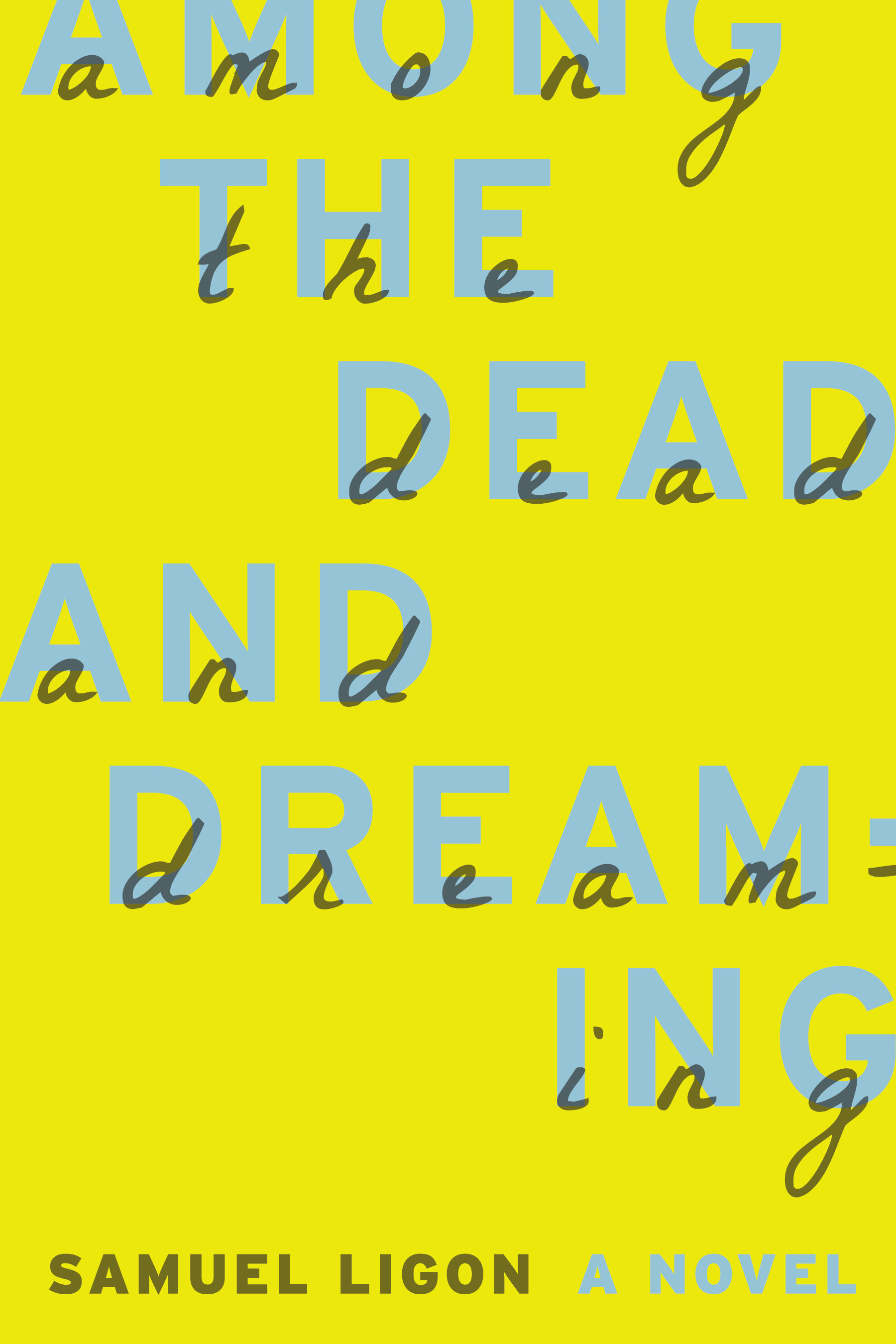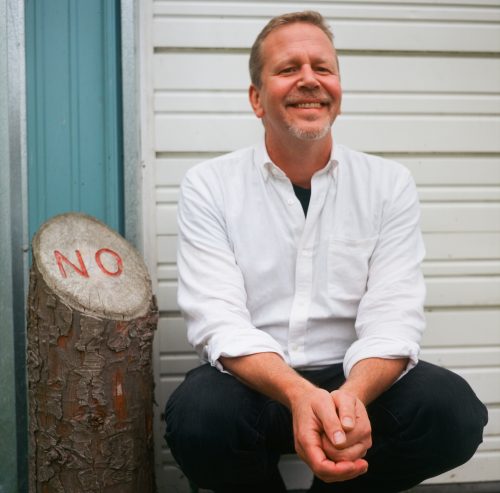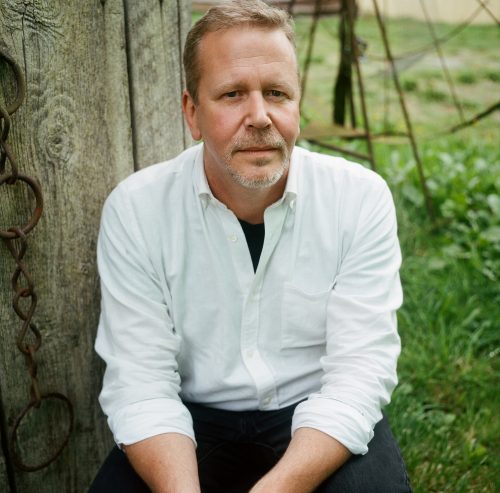Among the Dead and Dreaming is written in chapters no more than a few pages long, and most contain multiple points of view, refracting off each other. It’s an intricate narrative that resists excerpting; by mid-book, each first-person fragment is so congested with interpersonal history that it’s impossible to extract. The following chapter—the book’s second—takes place right after the motorcycle accident that kills Cynthia and Kyle. Here, Kyle’s lover, Nikki, recalls her violent past, which is about to catch up to her. Meanwhile, her soon-to-be-threatened daughter, Alina, expresses a healthy disdain for her prevaricating mother.
—Dawn Raffel
.
Nikki
At seventeen, I ran from home with a boy named George who left me broke on the street in Providence. I never found another love like we had those weeks before he disappeared, though I looked for it everywhere I went. That was my real problem, all that searching and hunger. I didn’t know you can only fall in love and run from your mother once in your life. George was the best mistake I ever made.
I stayed in Providence for months after he left, then moved to Austin, where I met my worst mistake—Cash. Maybe I was too hungry, remembering my time with George, or maybe we got together too fast, before I could really know him, but whatever the reason, pretty soon it was just me and Cash and nothing else in the world that mattered. We were happy, too, until I started looking for work. He had plenty of money, he told me, would buy me whatever I wanted. What I wanted, I told him, was my own money. I got a job at a barbecue place and the interrogations started. I wasn’t interested in anyone else, but he’d accuse me of cheating or plotting to cheat. Why else would I talk to someone or look at someone or go to a coffee shop or have ever been born?
I’d been independent too long to put up with that kind of shit. But I did put up with it—until he called me mouthy.
“What did you say?” I said, and he said, “I’m tired of the mouth on you,” and I said, “So leave,” and he said, “I don’t want to leave,” and we got into it worse than ever before, fighting all night.
He said it again a week later—“What’d I say about mouthy?”—and that’s when I knew it was over for good. But he promised to change, and even though I knew better, I forgave him. We lived in a big house on Duval Street, with a lot of other people, him in the basement, and me on the second floor. After I took him back, he started spying on me. “You don’t know what love is,” he told me, before and after I broke it off for good. “You don’t know what love is,” he told me as he stalked me and haunted me for months.
He’d break into my room, follow me around, and the more cold and pissed off I became, the more threatening he became, unhinged and dangerous, until I finally had to move out of that house. But I didn’t run far enough—only across town, where I thought I was hidden. There was a moment of rest then, maybe a month. I was so young and stupid, so hungry for love, even after all that. Maybe because of all that. I fell for this guy, Daryl, and Cash tracked me down and hurt me more than I’d ever been hurt before. I ran to Oregon, where I waited for Alina to be born, praying she was Daryl’s baby, but the minute I saw her face, blood streaked and furious, I knew she’d come from Cash. She had attached earlobes like his and my eyelids, and she was the most beautiful thing I’d ever seen, even if she did come from Cash.
I never meant to kill him. Or I meant to and couldn’t follow through and then he died anyway, before I ran from Austin with Alina just a speck in my belly. So Kyle wasn’t my first boyfriend to die—just the one I could have made a life with, maybe, if things had been different. What happened with Cash was self defense and another reason to get on another bus and keep moving, always moving from the minute I left my mother in Manchester, always hoping to lose myself completely.
I didn’t know Cash had a brother until Burke called a few weeks ago. For a second when I heard his voice, I thought Cash was back from the dead. I couldn’t make sense of the moment, because I didn’t know Burke existed. The sound of his voice on the phone stripped me to something I didn’t want to recognize in myself, like I was eighteen again, sprung to run, ready to pop. But I wasn’t eighteen. I was thirty-one. And the only thing thatmattered was making sure Burke never found out about Alina.
Alina
My mom talks about the mistakes she made when she was young and wild, but she never tells me what I want to hear. My father, she says, died in a car accident before I was born. Other than that, she won’t talk about him at all. Ever. I’ve never seen a picture or met a grandparent. “What about diseases and stuff?” I used to ask. “What about genes?” I knew that would get to her because of her own mother’s death from cancer. And her aunt’s.
“What about genes?” she said.
“I should know who he is,” I said, “where I came from.”
“You came from me,” she said.
“You don’t know his name?”
“Jim,” she said.
But sometimes he had other names.
That was when we were living in Seattle, before I learned to stop asking. They skipped me a grade, from second to third, because I was bored and getting in trouble and she wouldn’t let them put me on drugs. She was with Hal then, off and on, a guy she met at the restaurant. I didn’t care about Hal. I didn’t care about any of them until Kyle.
Nikki
“Make sure Kyle calls and writes,” Alina told me yesterday morning, before I left her at her new school in Michigan. “He will,” I said, so grateful she was gone. Now, I’ll have to bring her home and get her away again safe, but with a broken heart this time.
Months ago, I was furious with Kyle for encouraging her to attend Interlochen. He knew I couldn’t afford boarding school, that I didn’t want her in a place filled with rich kids, that I didn’t want to lose her so young. But he kept talking about the place. He’d gone to art school himself and it changed him, he said, made him a better person. He wanted to pay her way, whatever wasn’t covered by scholarships. We’d only been seeing each other a few months.
“She doesn’t have to know where the money comes from,” he said one night when we were watching the water from a bench on the boardwalk. “It’ll be like another scholarship,” he said. Alina was at a friend’s house. We hadn’t talked about it in weeks.
“And if it doesn’t work out, she can come home.”
He looked so open and vulnerable, so hungry to help.
“I appreciate the offer,” I said. “I really do,” and he said, “So let me do this,” and I wondered if I could—for Alina’s sake, but also because I thought falling into his debt might be good for me, too, an act of faith, a kind of surrender. I didn’t want to hold myself so tight forever. I surprised us both when I took him up on his offer a few days later, grateful for his help, until Burke called, and then I was just grateful for a place to hide Alina, pulling back from faith and surrender as fast as I could.
Kyle loved me, I know that much, whether I deserved it or not. But he was in love with Cynthia, too, and had been for years. She was rich like him and careless about money, careless about everything, the way rich people always are. The nudes he painted of me had her eyes, the reason I couldn’t love him right, because he was in love with her, the lie I told myself, the lie I keep telling.
—Samuel Ligon
N5
Samuel Ligon is the author of four books of fiction, Wonderland, Safe in Heaven Dead, Drift and Swerve, and Among the Dead and Dreaming. His stories have appeared in New England Review, Prairie Schooner, The Quarterly and many other places. His essays appear regularly in The Inlander. Ligon is the editor of Willow Springs, and Artistic Director of the Port Townsend Writers’ Conference. He teaches at Eastern Washington University.


